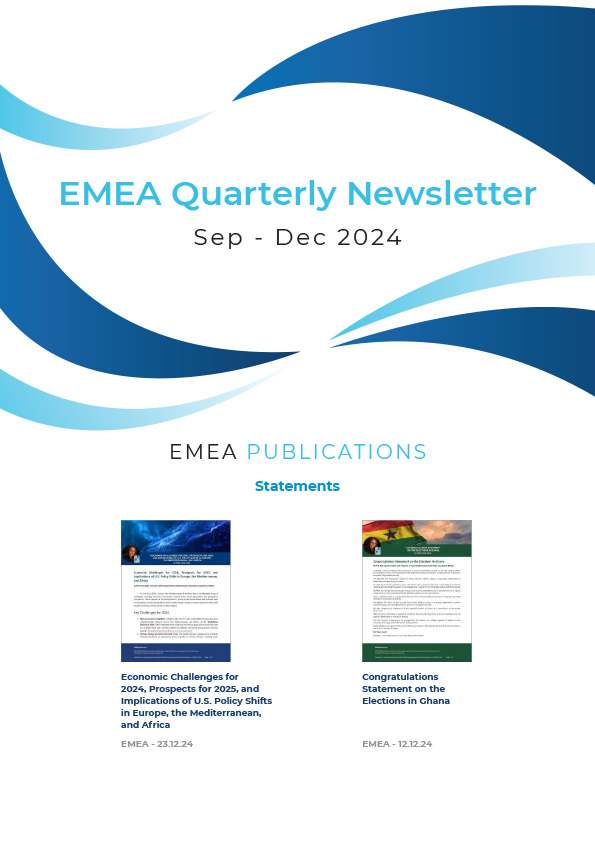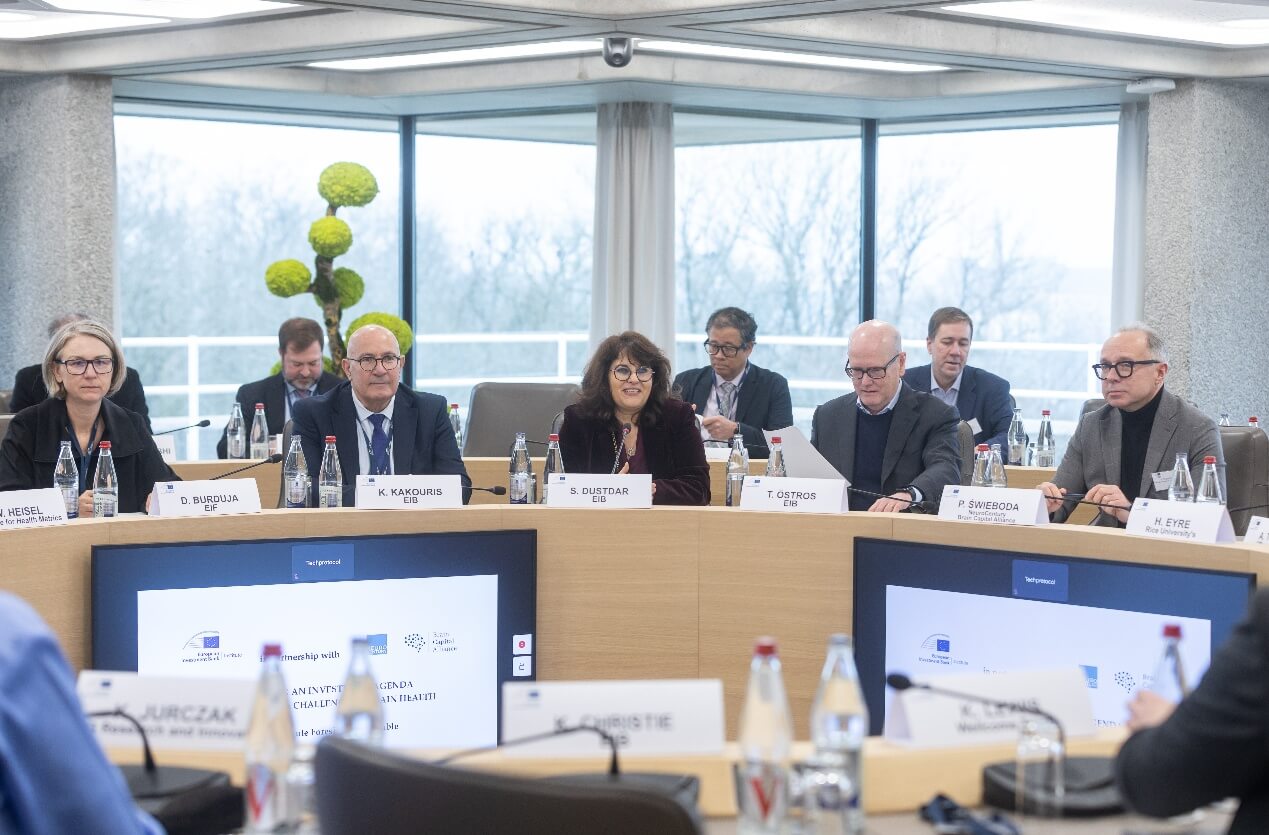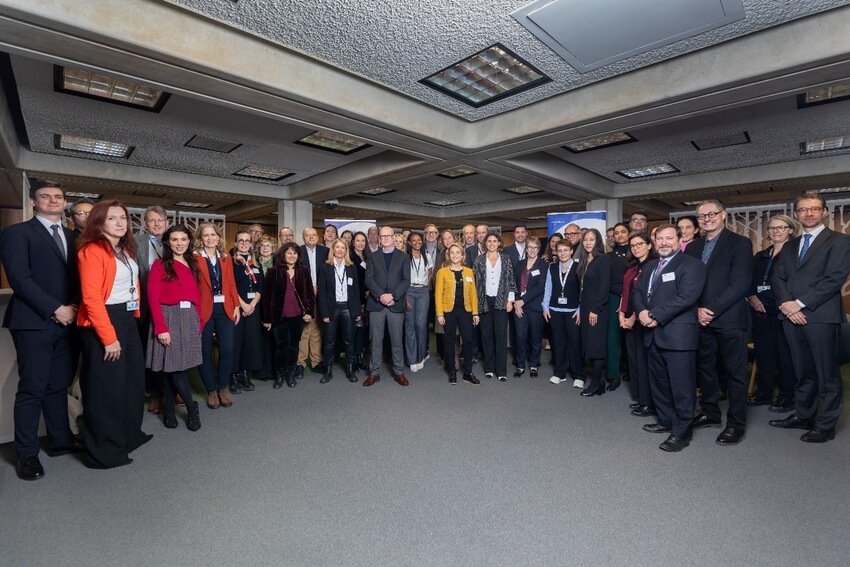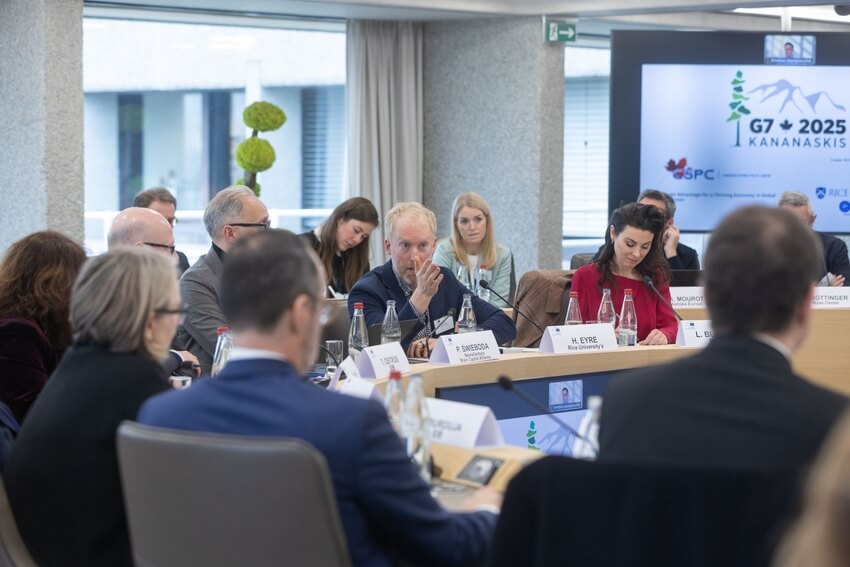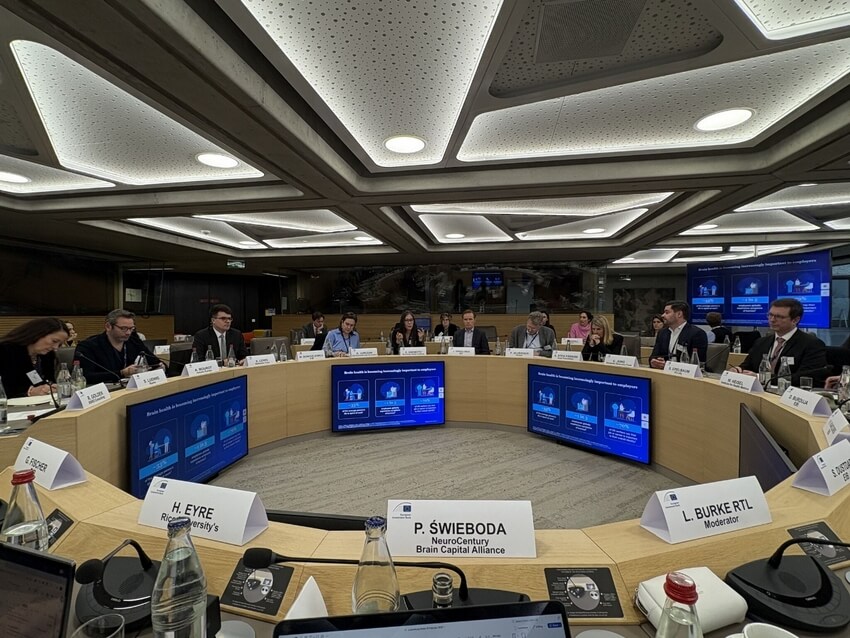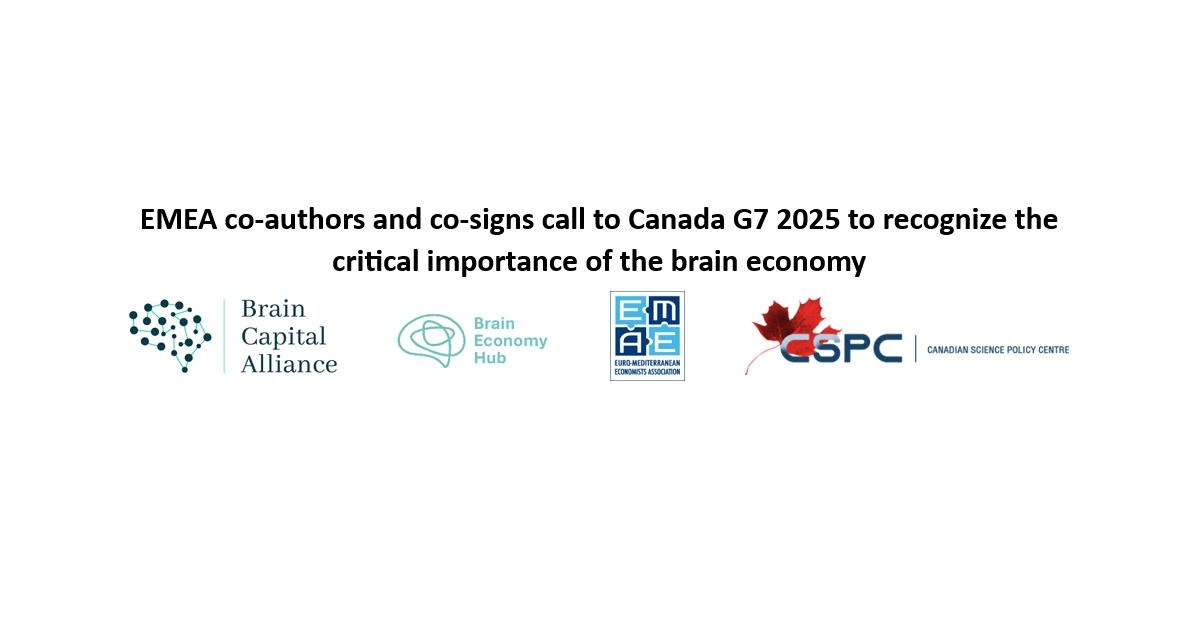On 10 February 2035 in Luxembourg, the European Investment Bank (EIB) Institute, led by Shiva Dustdar, together with NeuroCentury and the Brain Capital Alliance, organized the Foresight Roundtable “Systemic Investing in the Brain Economy: Building an Investment Agenda to Tackle the Challenge of Brain Health.”
EMEA advisors Dr. Harris Eyre, Lead and Senior Fellow in Neuro-Policy at Rice University Baker Institute for Public Policy and Executive Director of the Brain Capital Alliance, and Paweł Świeboda, Founder of NeuroCentury and co-founder of the Brain Capital Alliance, co-organized the roundtable, which gathered 50 senior experts from the Bank, biopharmaceuticals, medical devices, venture capital, private banking, public policy, and philanthropy.
Topics discussed included the size and scope of the problem, solutions spanning new drugs, devices, digital tools and diagnostics, infrastructure needs in the health system such as infusion and brain imaging centers, neuroscience-designed cityscapes, and the role of public-private-philanthropic partnerships. A range of investment approaches were considered spanning venture capital, fund of funds, venture debt, and debt. The goal is to structure a historic investment strategy.
Thomas Ostros, Bank Vice President, noted during the meeting “The EIB’s investments in the health sector are a testament to our unwavering commitment to improving global health outcomes. We will continue to leverage our expertise, partnerships, and financial resources to support innovative and impactful health projects that benefit communities worldwide, including in transversal priorities like the theme of the day: Brain Health”.
Dr. Harris Eyre, noted “We are entering a new era shaped by the rise of the brain economy, where brain capital — comprising of brain health and brain skills — serves as the cornerstone of sustainable economic growth. According to the McKinsey Health Institute (MHI), prioritizing brain health and fostering brain capital has the potential to unlock $26 trillion in global economic opportunities by enhancing workforce performance, igniting innovation, and reclaiming millions of years of quality life.”
Eyre was the senior author of the first peer-reviewed technical paper on the brain economy published in 2020 which proposal an investment plan. He also co-led the early Organisation for Economic Co-Operation and Development (OECD) Neuroscience-Inspired Economics Initiative. Since then, the work has proliferated including major success at the most recent World Economic Forum.
“It’s amazing to see the proposal coming to fruition thanks to the innovative, open minds at the Bank. We hope to take this EIB work to the G7 in Canada in the coming months. This way the US has a seat at the table and we can bring this work home”, exclaimed Eyre, who recently led a G7-wide editorial via the Canadian Science Policy Centre, calling for a G7 Canada Brain Economy Summit. Eyre noted that at the G7 Canada other development finance institutions from other G7 nations, like the US Development Finance Corporation, could help to expand this work and it’s impact.
From his side Paweł Świeboda underlined that “Given demographic trends and the prevalence of brain disorders in older age, unlocking investment in prevention, discovery science, drug development, psycho-social interventions and infrastructure of care is essential to make our welfare states ready for one of the most consequential challenges this century.”
The Brain Capital Alliance is promoted and co-funded by EMEA, and the President of EMEA, Prof. Rym Ayadi, is a co-founder of the Alliance. The EMEA team, in collaboration with OECD Neuroscience-inspired Policy Initiative, the Brain Capital Alliance, and the Global Brain Capital Dashboard Working Group, has developed the Global Brain Capital Dashboard. The Dashboard aims to quantify and track Brain Capital while also serving as a platform to inspire novel policy innovation.
Link to the Global Brain Capital Dashboard

